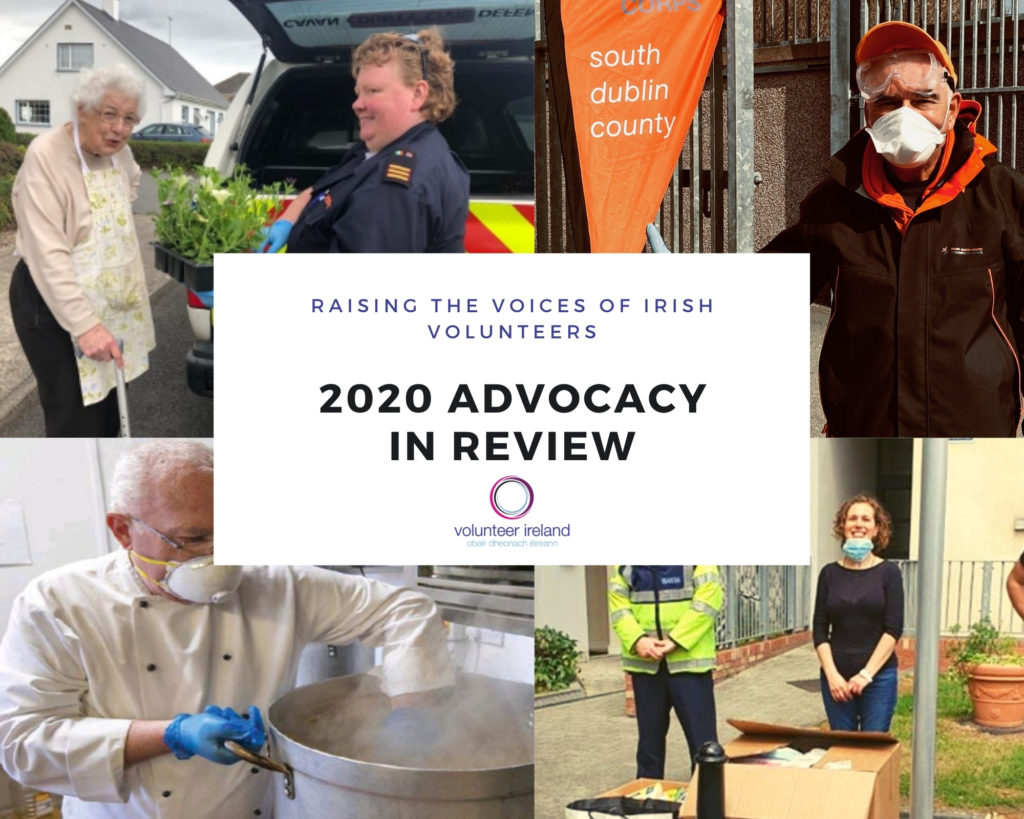

Ireland’s Public Affairs Officer, Heber Rowan, takes a look back at the last year and how our advocacy efforts strengthened and evolved throughout the year.
2020 was a year unlike any other. It was a year that showed the value of volunteering to Irish society and how important our work is for volunteers and organisations that involve volunteers.
With the COVID-19 restrictions in place, Volunteer Centres supported frontline efforts to combat COVID-19 as part of the Community Call initiative.
The pandemic’s restrictions on Irish society resulted in a huge upswelling of public support for volunteering with almost 23,000 people signing up to the national volunteering database I-VOL for COVID-19 related roles since March.

What we did this year
Like everyone, with the onset of the COVID-19 restrictions we had to make changes to the way we worked and how we continued to deliver on our advocacy objectives.
With the conclusion of the February 2020 general election leading to a coalition government in June, we were delighted to welcome the appointment of the first ever Minister of State for Community Development and Charities, Joe O’Brien TD.
With the COVID-19 restrictions having a massive impact on the fundraising efforts of Irish charities and community groups, we supported the efforts of the Wheel, the Charities Institute and others to advocate for a stability fund. This fund was a welcome relief to many volunteer involving organisations facing difficult times.
To highlight the range of personal stories involved in the COVID-19 response we developed a collection of stories, “How Irish communities stepped up to the mark – Stories of Irish Volunteering during COVID-19“. Working with the network of Volunteer Centres, we highlighted inspiring stories of the breadth and diversity of volunteering in the midst of the summer lockdown. It was also distributed to a range of public representatives to highlight the work and also to provide a longer term record of the change that occurred in Irish volunteering this year. 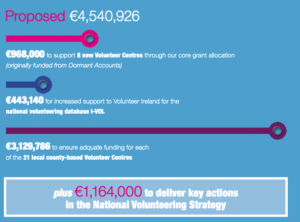
Additionally, we launched our pre–budget submission which requested appropriate funding for the national volunteering strategy, I-VOL, eight new volunteer centres nationally and an overall request for 10% extra funding for the network of Volunteer Centres. To drive this forward, we lobbied a range of government and opposition spokespeople to consolidate our message and highlight our concerns for the sector as a whole.
This year we were unable to undertake our normal in person meeting with Oireachtas members broadly though we were glad to get a virtual meeting with Minister Joe O’Brien. It was wonderful to have the Minister’s support and understanding of our work throughout our conversations.
In Budget 2021, an increase of 45% from €3.5 million to €5.1 million was allocated towards supporting the voluntary sector.
In October, the Department of Rural and Community development published its call for its statement of strategy and we presented our views on behalf of the sector.
 Crucially, the Department published the first ever National Volunteering Strategy in December after extensive public consultations. Volunteer Ireland and the network of Volunteer Centres have been advocating for a national volunteering strategy for many years. We are delighted to have played an important role in its development and look forward to seeing the exciting new initiatives contained within to diversify, strengthen and broaden the scope of volunteering across Ireland.
Crucially, the Department published the first ever National Volunteering Strategy in December after extensive public consultations. Volunteer Ireland and the network of Volunteer Centres have been advocating for a national volunteering strategy for many years. We are delighted to have played an important role in its development and look forward to seeing the exciting new initiatives contained within to diversify, strengthen and broaden the scope of volunteering across Ireland.
What we learned
We learned that even in the most extraordinary of circumstances, communities will continue to help those in need. It reminded us of the necessity to take a dynamic and creative approach to supporting volunteers. With the new national volunteering strategy in place, we relish the opportunities ahead to do just that.
What’s next for 2021?
With seven new Volunteer Centres opening in 2021, we intend to support their advocacy efforts by providing a range of training and materials for them. We will continue to support the network of Volunteer Centres with an updated advocacy resource toolkit.
With the many deliverables ahead of us from the national volunteering strategy we have our work cut out for us and we’re very much looking forward to it! Thank you for your support this year and next.
 Mary Rice volunteers with ISPCC Childline in Castlebar, Co. Mayo. This National Volunteering Week she tells us why she volunteers, what it’s like and why she’d recommend it to everyone.
Mary Rice volunteers with ISPCC Childline in Castlebar, Co. Mayo. This National Volunteering Week she tells us why she volunteers, what it’s like and why she’d recommend it to everyone.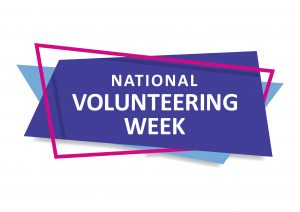

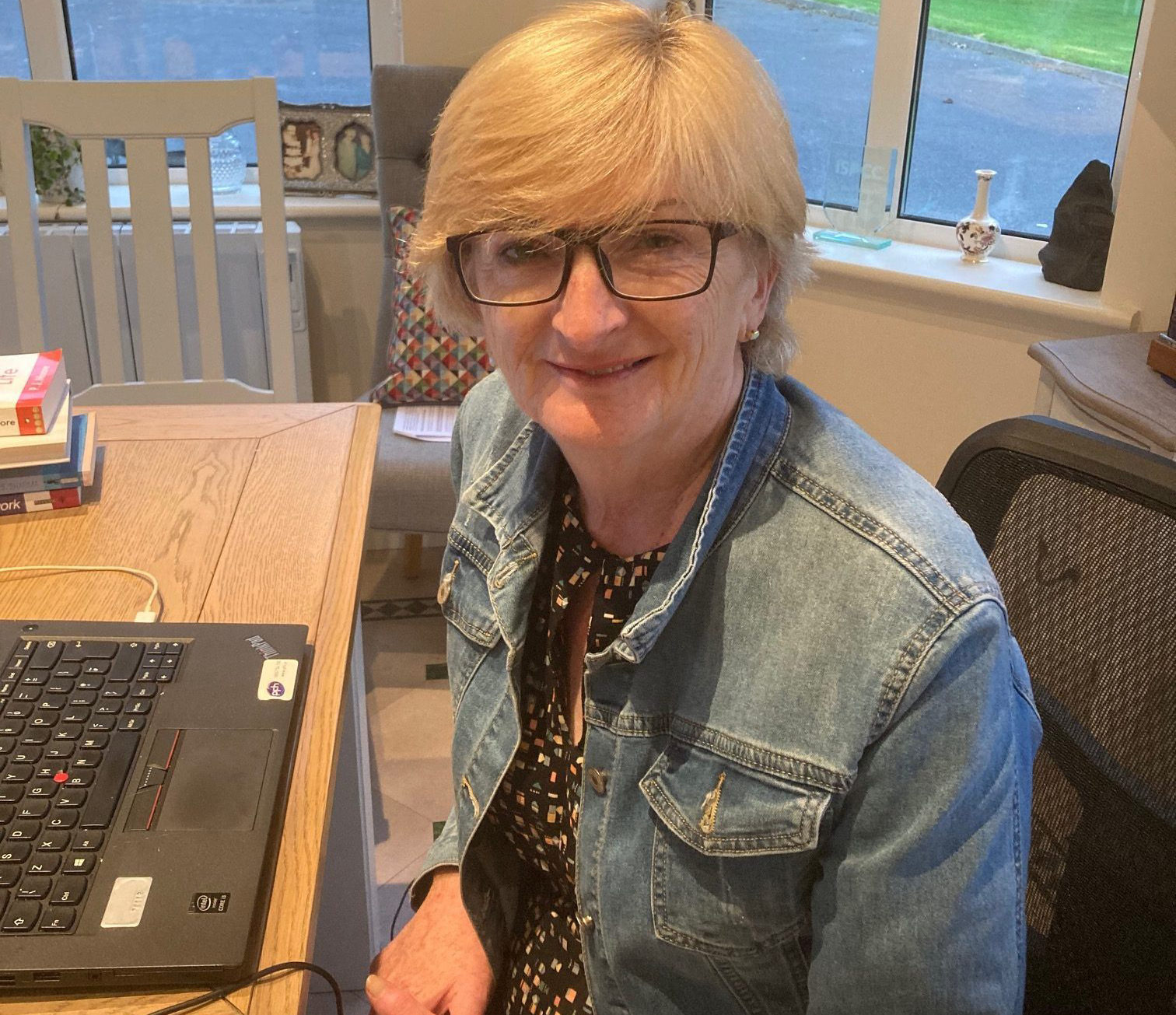
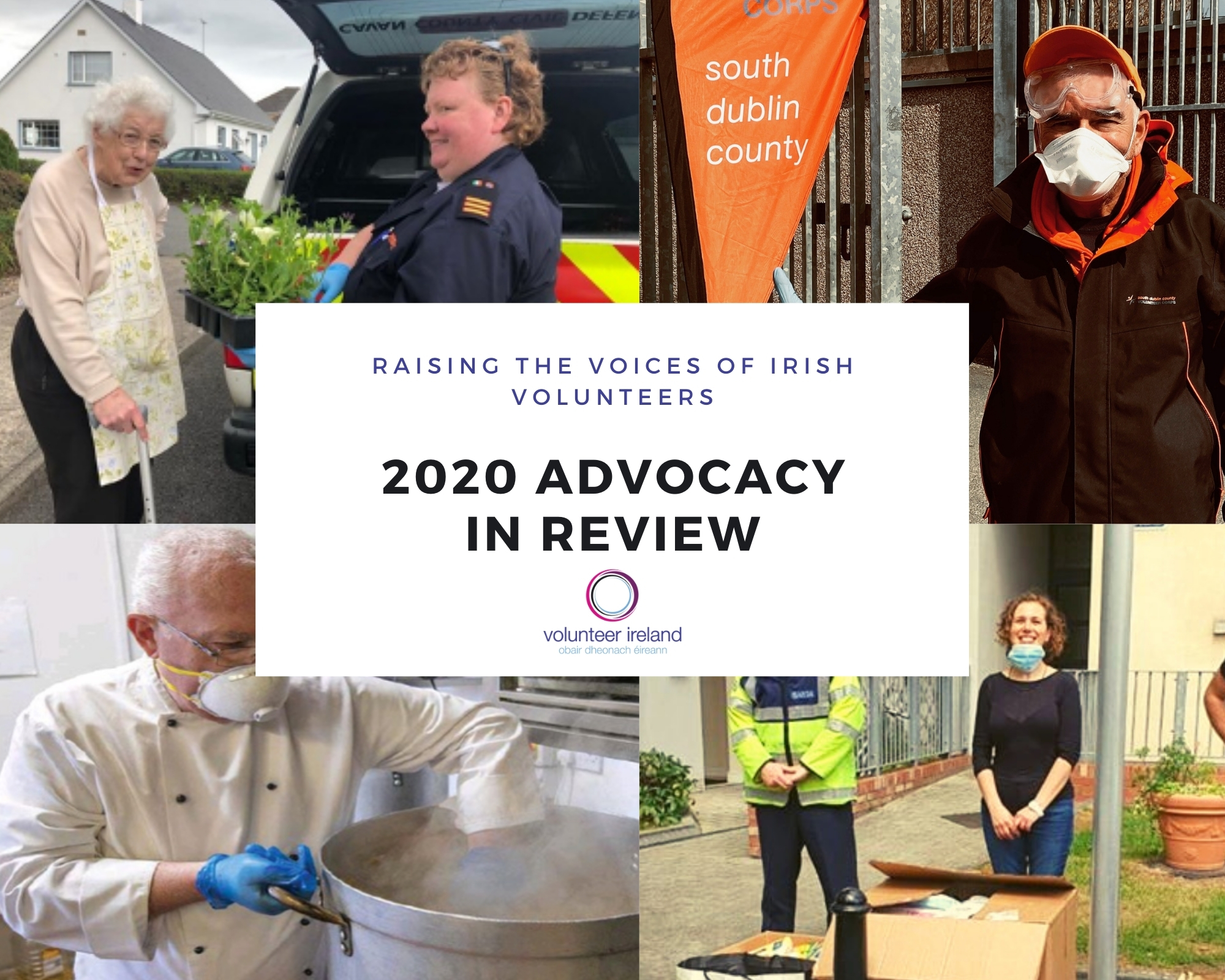




 Crucially,
Crucially, 
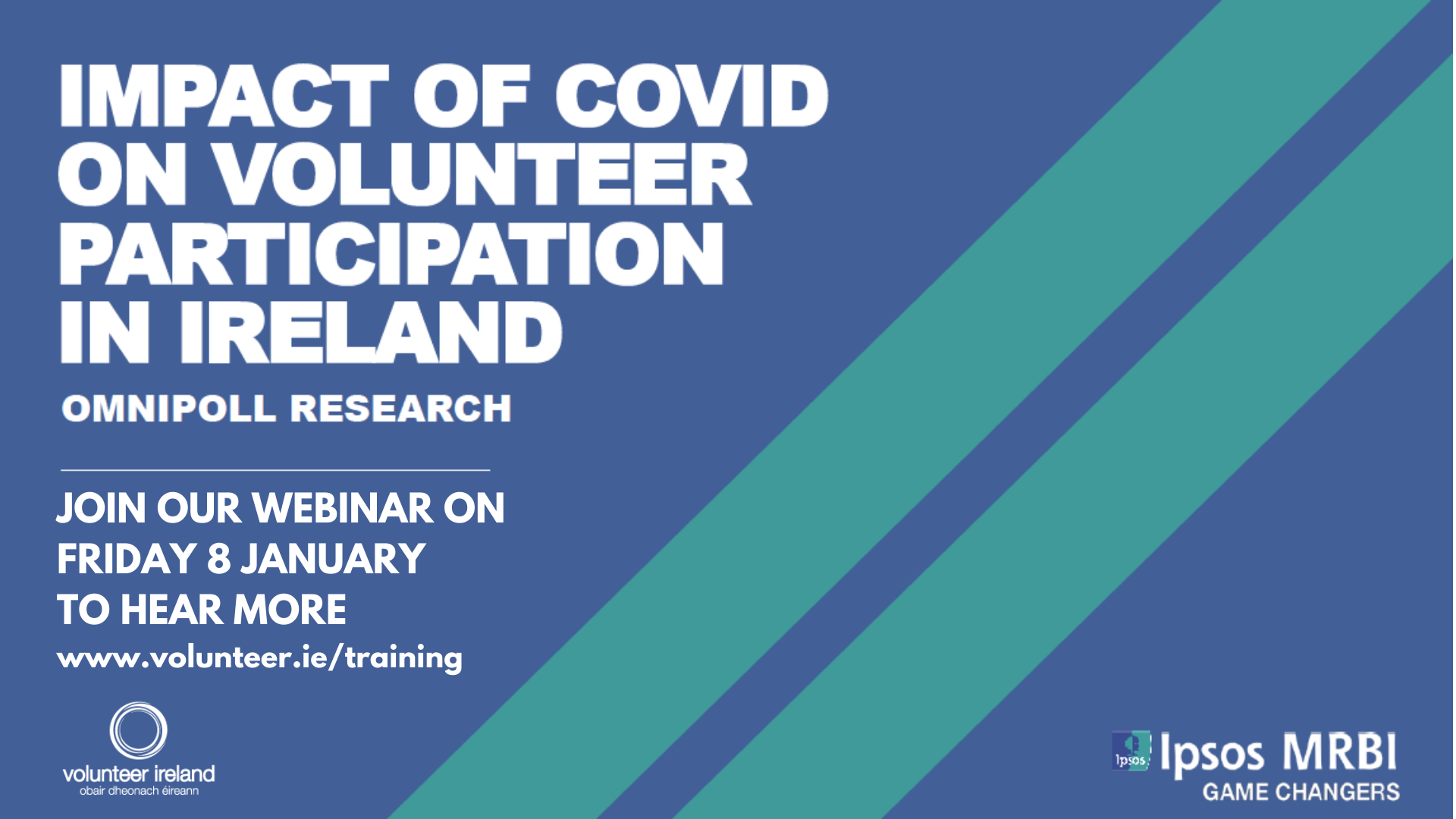 According to new Ipsos MRBI statistics commissioned by Volunteer Ireland, three-quarters of the population volunteered their time since the onset of the COVID-19 pandemic in March this year.
According to new Ipsos MRBI statistics commissioned by Volunteer Ireland, three-quarters of the population volunteered their time since the onset of the COVID-19 pandemic in March this year.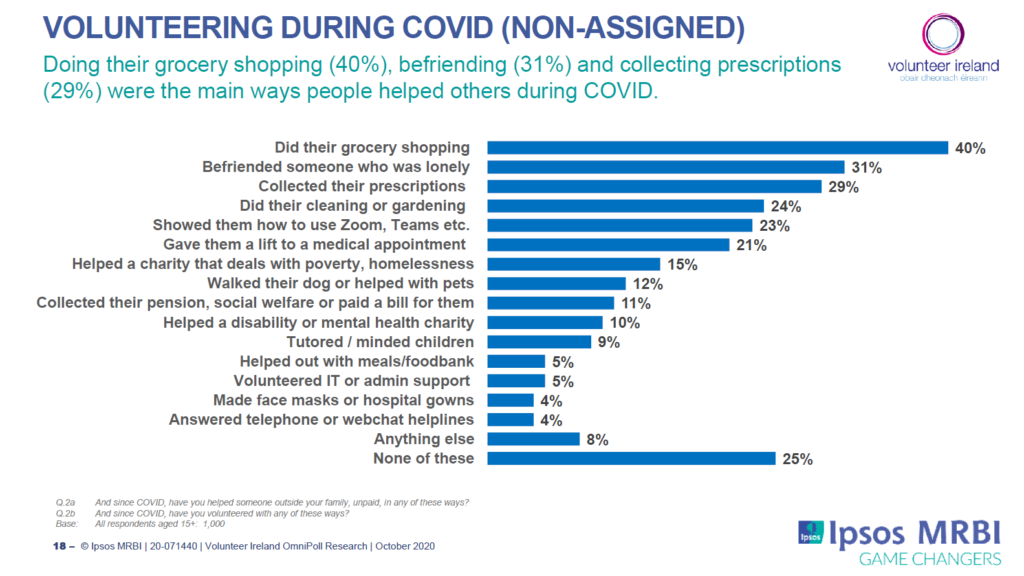
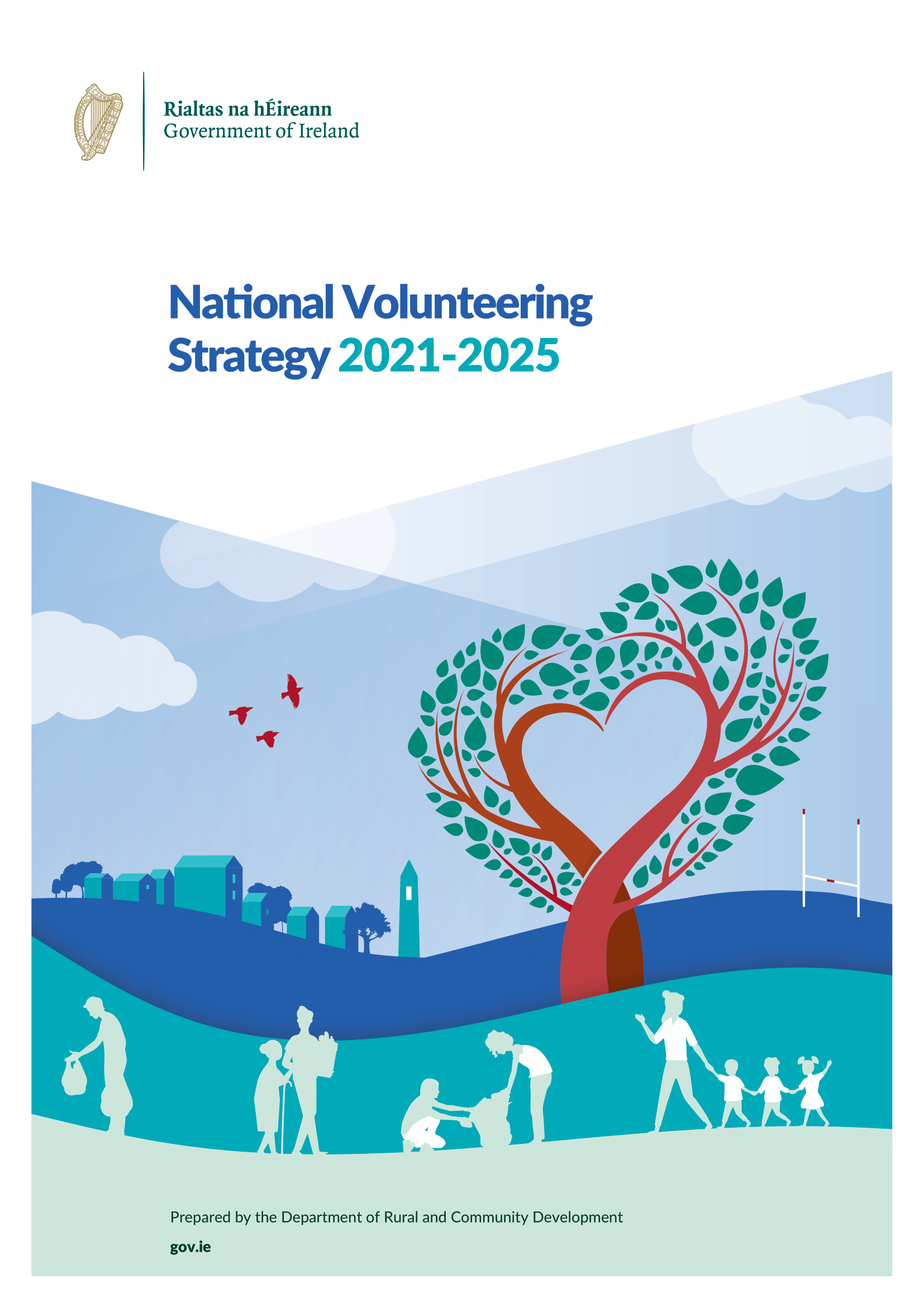


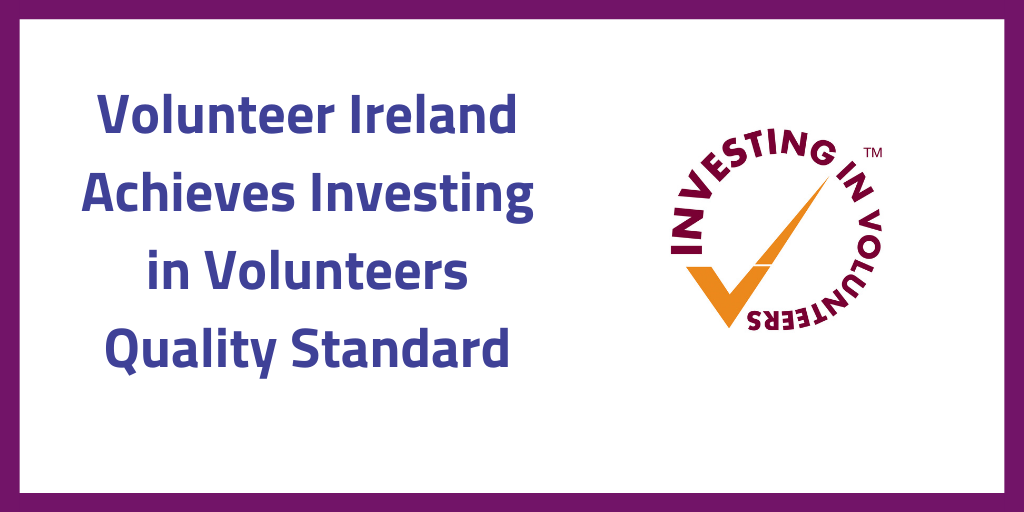


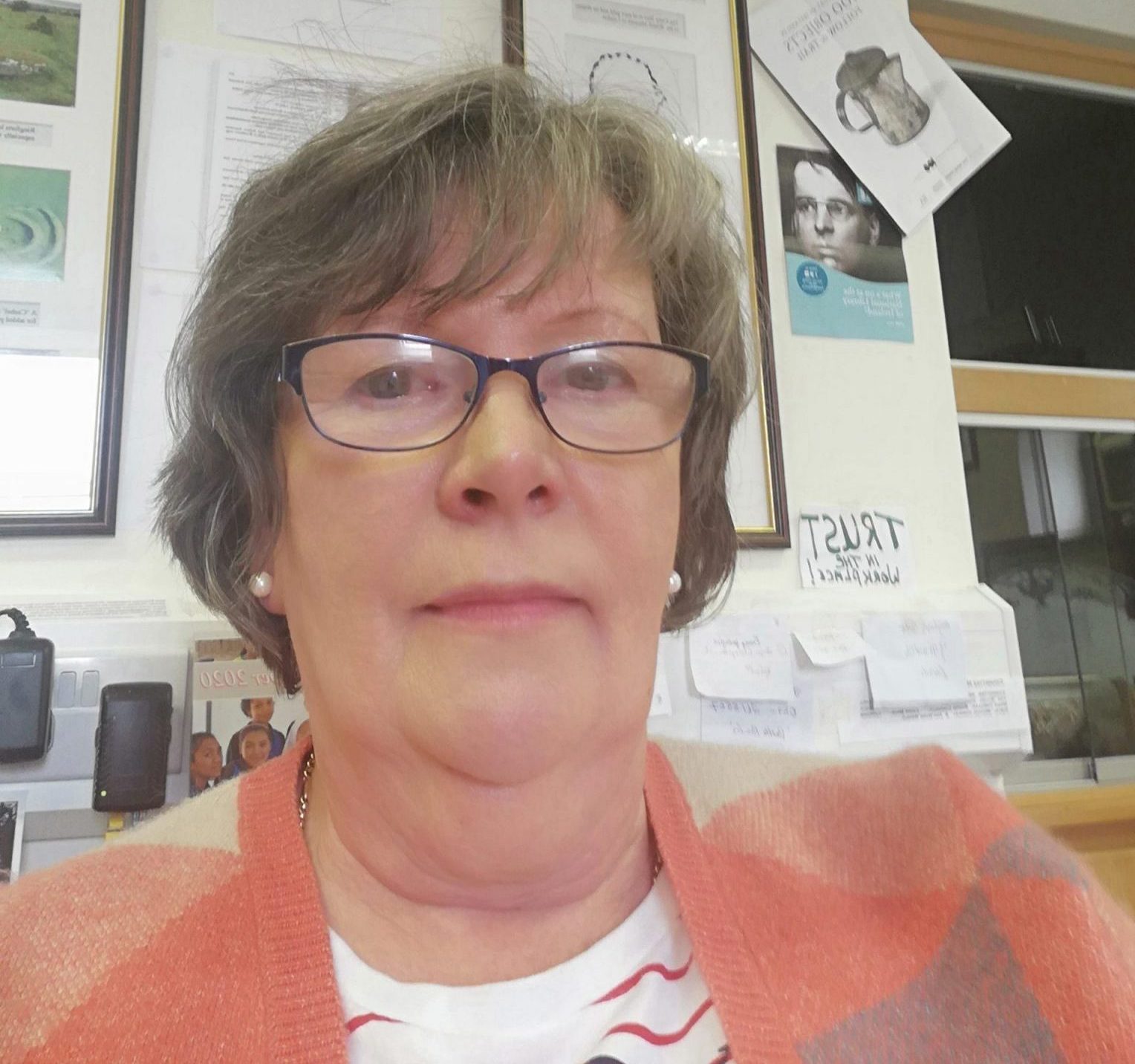
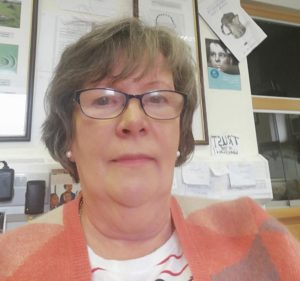 Martina Brennan is the Coordinator of the Friendly Call Service in Moylough, Co. Sligo. This National Volunteering Week, we chatted to Martina about the importance of the service, what she gets out of it and why volunteers are so important.
Martina Brennan is the Coordinator of the Friendly Call Service in Moylough, Co. Sligo. This National Volunteering Week, we chatted to Martina about the importance of the service, what she gets out of it and why volunteers are so important.
 Martin J Cowling is a knowledgeable and popular international trainer based in Canberra, Australia. He possesses over 20 years of management experience with organizations including UNICEF, AFS Intercultural Programs, The Smith Family, and Victorian Relief. Today he gives is the five actions volunteer managers need to do right now.
Martin J Cowling is a knowledgeable and popular international trainer based in Canberra, Australia. He possesses over 20 years of management experience with organizations including UNICEF, AFS Intercultural Programs, The Smith Family, and Victorian Relief. Today he gives is the five actions volunteer managers need to do right now.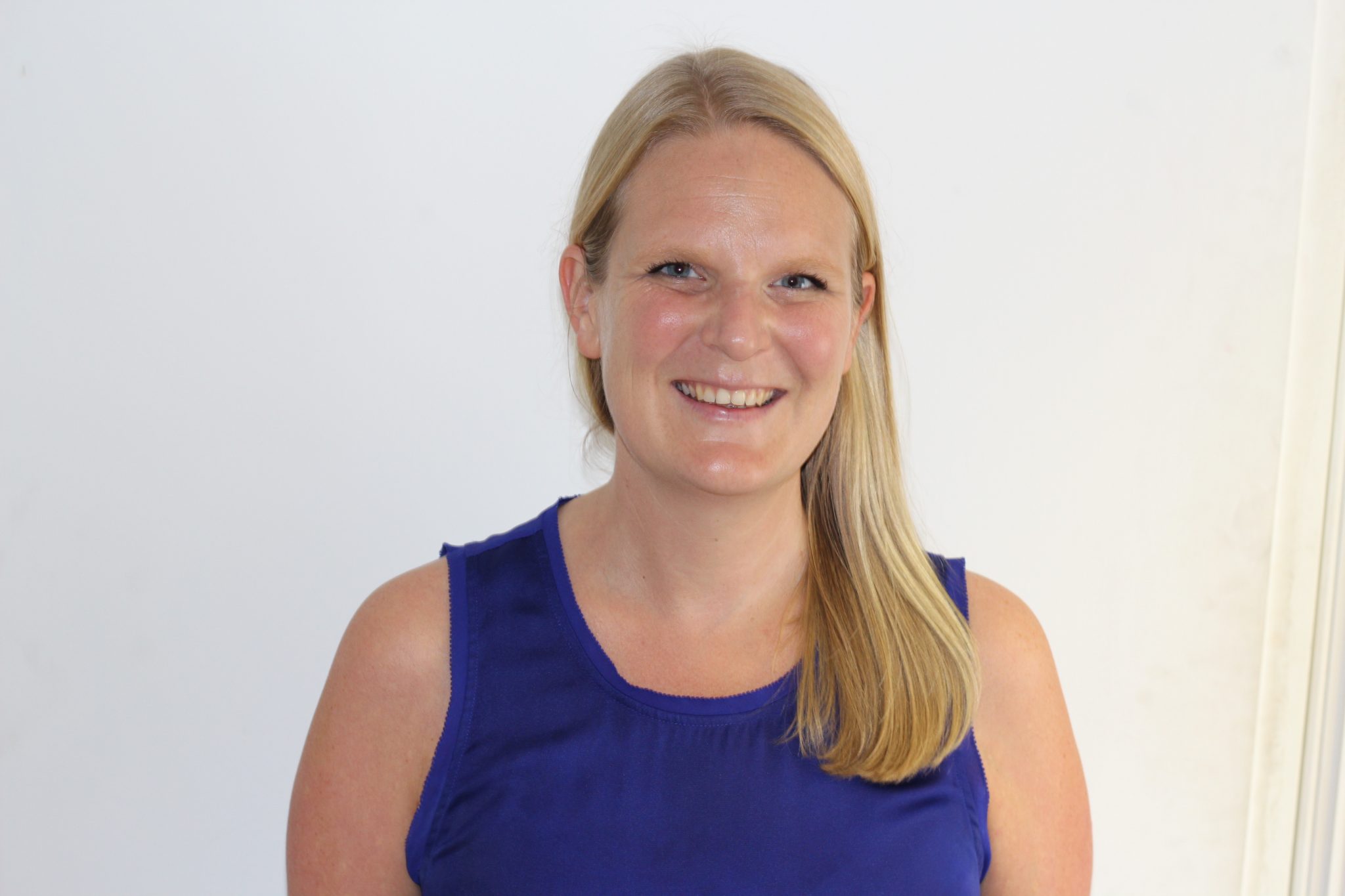
 Volunteer Ireland CEO Nina Arwitz takes a look at the numbers around COVID-19 and examines a phenomenon seen in Ireland and many countries around the world – that there are more people signing up to volunteer than there are available volunteer roles.
Volunteer Ireland CEO Nina Arwitz takes a look at the numbers around COVID-19 and examines a phenomenon seen in Ireland and many countries around the world – that there are more people signing up to volunteer than there are available volunteer roles. 
 Orla Leahy is a student from Cork who is currently going for her Gaisce Gold Award. Here she tells us how COVID-19 has affected her, how she has adapted her Gaisce challenges and how she’s been volunteering from home.
Orla Leahy is a student from Cork who is currently going for her Gaisce Gold Award. Here she tells us how COVID-19 has affected her, how she has adapted her Gaisce challenges and how she’s been volunteering from home.